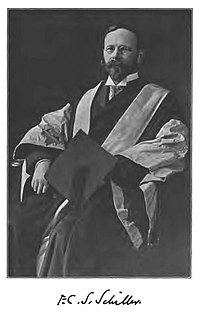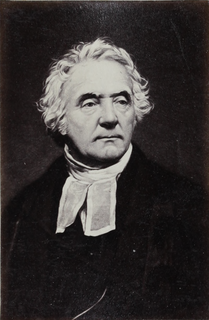A Quote by F. C. S. Schiller
One curious result of this inertia, which deserves to rank among the fundamental 'laws' of nature, is that when a discovery has finally won tardy recognition it is usually found to have been anticipated, often with cogent reasons and in great detail.
Related Quotes
Laws, it is said, are for the protection of the people. It's unfortunate that there are no statistics on the number of lives that are clobbered yearly as a result of laws: outmoded laws; laws that found their way onto the books as a result of ignorance, hysteria or political haymaking; antilife laws; biased laws; laws that pretend that reality is fixed and nature is definable; laws that deny people the right to refuse protection. A survey such as that could keep a dozen dull sociologists out of mischief for months.
How shall we define occultism? The word is derived from the Latin occultus, hidden; so that it is the study of the hidden laws of nature. Since all the great laws of nature are in fact working in the invisible world far more than in the visible, occultism involves the acceptance of a much wider view of nature than that which is ordinarily taken. The occultist, then, is a man who studies all the laws of nature that he can reach or of which he can hear, and as a result of his study he identifies himself with these laws and devotes his life to the service of evolution.
But it is just this characteristic of simplicity in the laws of nature hitherto discovered which it would be fallacious to generalize, for it is obvious that simplicity has been a part cause of their discovery, and can, therefore, give no ground for the supposition that other undiscovered laws are equally simple.
We are very lucky to be living in an age in which we are still making discoveries. It is like the discovery of America-you only discover it once. The age in which we live is the age in which we are discovering the fundamental laws of nature, and that day will never come again. It is very exciting, it is marvelous, but this excitement will have to go.
The human mind feels restless and dissatisfied under the anxieties of ignorance. It longs for the repose of conviction; and to gain this repose it will often rather precipitate its conclusions than wait for the tardy lights of observation and experiment. There is such a thing, too, as the love of simplicity and system,--a prejudice of the understanding which disposes it to include all the phenomena of nature under a few sweeping generalities,--an indolence which loves to repose on the beauties of a theory rather than encounter the fatiguing detail of its evidences.
The laws of Nature take precedence of all human laws. The purpose of all human laws is one - to defeat the laws of Nature. This is the case among all the nations, both civilized and savage. It is a grotesquerie, but when the human race is not grotesque it is because it is asleep and losing its opportunity.
Pantaenus was one of these and is said to have gone to India. It is reported that among persons there who knew of Christ, he found the Gospel according to Matthew, which had anticipated his own arrival. For Bartholomew, one of the apostles, had preached to them, and left with them the writing of Matthew in the Hebrew language, which they had preserved till that time. After many good deeds, Pantaenus finally became the head of the school at Alexandria, and expounded the treasures of divine doctrine both orally and in writing.
Professor Eddington has recently remarked that 'The law that entropy always increases - the second law of thermodynamics - holds, I think, the supreme position among the laws of nature'. It is not a little instructive that so similar a law [the fundamental theorem of natural selection] should hold the supreme position among the biological sciences.
Our youth can not understand why society chooses to criminalize a behavior with so little visible ill effect or adverse social impact... These young people have jumped the fence and found no cliff. And the disrespect for the possession laws fosters a disrespect for laws and the system in general... On top of this is the distinct impression among the youth that some police may use the marihuana laws to arrest people they don't like for other reasons, whether it be their politics, their hair style or their ethnic background.
Often the great scientists, by turning the problem around a bit, changed a defect to an asset. For example, many scientists when they found they couldn't do a problem finally began to study why not. They then turned it around the other way and said, "But of course, this is what it is" and got an important result.








































